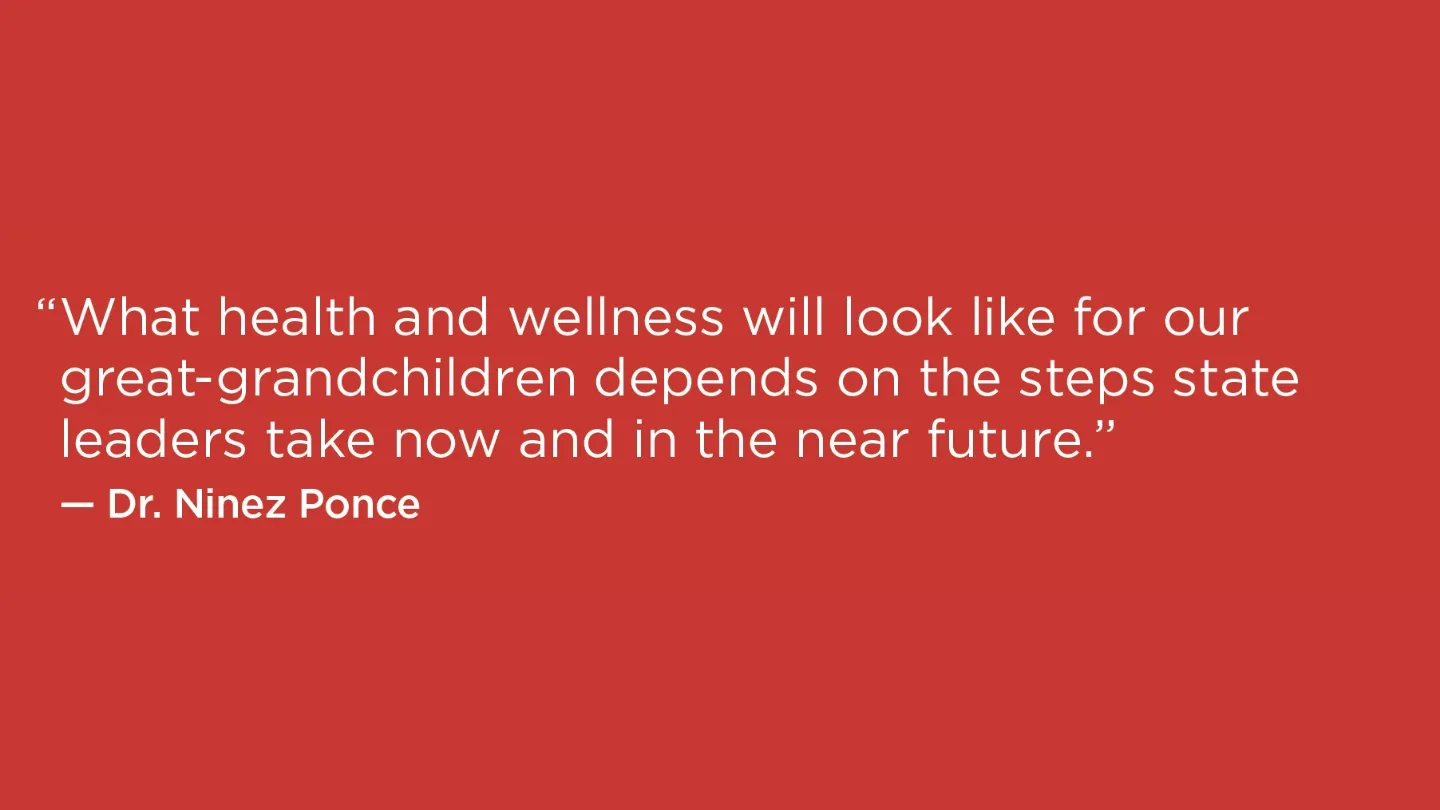Forward Thinking
An analysis by FSPH’s UCLA Center for Health Policy Research lays out what California needs to do today to ensure that in 100 years, all residents have the opportunity to thrive.

WHAT STEPS CAN CALIFORNIA policymakers and healthcare leaders take today to enhance the prospects for all of the state’s residents to enjoy good health into the next century? One of the most important is to broaden the definition of health to encompass much more than the healthcare system, says Dr. Ninez Ponce (PhD ’98), professor and chair of the UCLA Fielding School of Public Health’s Department of Health Policy and Management, and director of FSPH’s UCLA Center for Health Policy Research (CHPR).
“California has made significant strides in insurance coverage, but coverage isn’t enough,” Ponce says. “We have to think beyond health-care — working toward ensuring opportunities for livable wages, affordable housing, safe neighborhoods, good schools, and healthy food.”

Ponce’s conclusion comes from a research report released in 2022 by CHPR as part of California 100, a statewide initiative developed by the University of California to inspire a vision and strategy for California’s next 100 years that is innovative, sustainable, and equitable. The initiative awarded grants to 18 centers and institutes in California to examine future scenarios in 15 priority areas with the potential to shape the state. Ponce led a team of CHPR and other UCLA Fielding researchers, including FSPH doctoral student Linh Chuong, that worked closely with other UCLA and community-based experts and stakeholders to analyze past policy decisions and societal shifts that have created the current situation, as well as key factors that will influence health and wellness in the state over the next century.
Ponce notes that although insurance isn’t sufficient to ensure health equity, it is an essential component. On that front, three federal policies have proved pivotal in improving access to healthcare: the passage of Medicare and Medicaid in 1965, the State Children’s Health Insurance Program in 1997, and the Affordable Care Act in 2010. California has been a leader in extending coverage to groups left out of those policies, including immigrants — approximately one-fourth of the state’s population — regardless of their documentation status, Ponce adds.
But even with these successes, wide disparities remain in health outcomes across socioeconomic groups, racial/ethnic populations, and regions of the state. The report points to two factors that will be integral to the future health of California’s population. The first is how broadly or narrowly health is defined. “We have to think beyond medicalized health,” Ponce says. “Health also involves psychosocial wellness, cultural health, happiness, and the ability to thrive. That means providing services for whole-person care, as well as a climate where people feel safe, welcomed, and valued.” Ponce and her coauthors also call for the interoperability of systems — integrating healthcare services with social services such as housing and education.
The report points to California’s role as a bellwether for the nation in advancing innovative paths to achieving health equity for its diverse population. In the report, Ponce lauded state leaders for “the beginning of a shift away from the current sickness system” through recent initiatives on healthy aging and Medi-Cal programs that address social and structural determinants of health.
“If we want to envision an ideal landscape of health for California looking ahead, we have to concentrate on all sectors that affect people’s health and well-being,” Ponce says. “What health and wellness will look like for our great-grandchildren depends on the steps state leaders take now and in the near future.”

